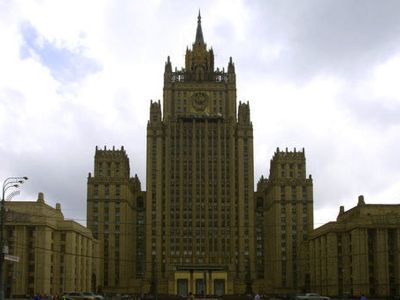
As the future of the UN OPCW Joint Investigative Mechanism (JIM) was being discussed at the UN Security Council on November 16, the United States and its supporters blocked the text of the Russian-Chinese draft resolution on renewing and strengthening the mandate of this entity which was submitted by Bolivia. As a result of such irresponsible actions, this Mechanism, which was created over two years ago in the interest of identifying perpetrators of chemical crimes in Syria, ceases to exist starting today. It became clear that vociferous calls by US representatives for the UN to renew its mandate were utterly hypocritical. Washington was not interested in renewing or strengthening the JIM, but preserving it unchanged as an instrument for achieving national goals of its foreign policy in Syria.
Notably, the blocked draft sought to eliminate the fundamental shortcomings in JIM’s activities and bring its activities more in line with the high standards of the Chemical Weapons Convention (CWC). The implementation of the measures envisaged in this document would make this entity truly independent, objective and highly professional, which clearly had not been the case. Among other things, under the draft the UN Secretary General was to submit practical recommendations on strengthening the Mechanism for consideration by the Security Council. The United States and a number of its Western allies were strongly opposed to such an outcome.
All this was preceded by voting on the American draft resolution on renewing the mandate of the JIM in an unchanged form, that is, with the purpose of preserving all the untenable methods of work that had been identified, without any attempts to rectify them. This was justified by claims that it was unacceptable to interfere in the work of an independent mechanism, which allegedly must determine itself what to do and how, without consulting the UN Security Council, the CWC, international norms, rules or standards.
This approach has already led to a situation where, without any serious investigation, the JIM began to rubber stamp guilty verdicts. The most vivid example was its most recent report, the seventh, released in late October. In defiance of objective facts, the laws of physics, ballistics and the blasting work, blame for the use of sarin in the Syrian locality of Khan-Shaykhun on April 4 was assigned in this report to Damascus, without providing any evidence. Russian experts on the subject speaking at an interdepartmental briefing at the Russian Foreign Ministry on November 2 relied on concrete facts and technical calculations to show that this accusation was baseless. No one was able or even tried to refute Russia’s arguments.
Given these circumstances, the simple extension of the JIM mandate, as if everything about its activities was fine, was unacceptable. As such, Russia had no choice but to veto the American draft.
Responsibility for the termination of JIM’s activities lies entirely with Washington and the member states of the UN Security Council which supported it. Russia is open to consultations regarding ways to overcome the current situation. We believe that resuming the activities of an entity that investigates the use of chemical weapons in Syria would be justified and even necessary only if lessons are learned from the negative experience of the Mechanism’s activities and if it is significantly strengthened.




























Stay In Touch
Follow us on social networks
Subscribe to weekly newsletter